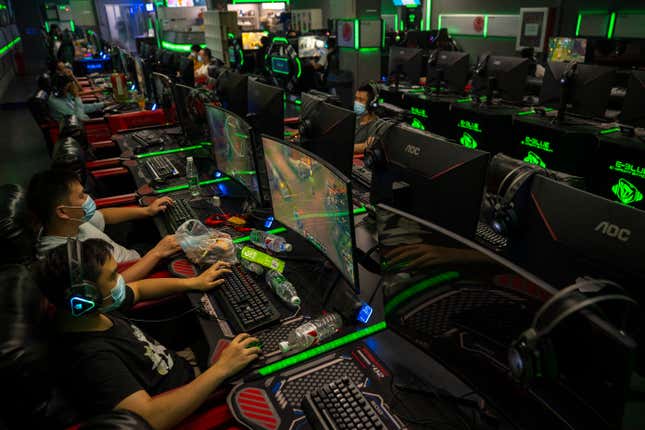
China’s freeze on video game licenses continues. South China Morning Post notes that the National Press and Publication Administration (NPPA) has not released a list of newly approved titles since July 2021. Because of this, state-run newspaper Securities Daily reports, approximately 14,000 small game studios and video game connection companies, including those involved in merchandising or publishing, have gone under.
Typically, the NPPA approves around 80 to 100 games a month, so the lack of an approved list has ground part of the industry to a halt. China is such a massive market, and the hiatus has caused uncertainty that has led to layoffs at game companies, and conglomerates with game divisions. However, it sounds like the smaller outfits have been hit the hardest.
In comparison, companies like tech giant Tencent have continued to expand internationally as a way to balance the regulatory situation at home. SCMP points out that Tencent also plans to open a new studio in Singapore under the TiMi Studio Group, which is responsible for Tencent’s mega-hit Honor of Kings. TiMi also has international studios in Montreal, Seattle, and Los Angeles.
No reason has been given for the hiatus, and the NPPA hasn’t stated when approvals will restart. Prior to this latest freeze, the longest period that new game licenses were not released was a nine-month window in 2018.
SCMP points out that the approval freeze happened a few months after March 2021, when President Xi Jinping mentioned his concerns about gaming’s psychological impact on young people. Later in August, state-run media referred to video games as “spiritual opium” and “electronic drugs.” Then, on September 1, restrictions limiting the online gaming of the nation’s youth went into effect. While these restrictions were not law (and were soon circumvented), the combined impact of all this, the lack of new game approvals, and general uncertainty, is impacting the industry—and not in a good way.